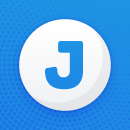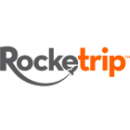Back in January, we brought you the top 50 startups to watch in 2016, highlighting young startups (less the five years old) that we expected to make waves this year. It’s been six months — and it’s time to check in on these companies and the progress they’ve made in the first half of the year.

Partnerships: June was a big month for Button. The mobile deeplinking company partnered with Quidco, the UK’s leading cashback site to help members purchase relevant deals on mobile. Using Button’s technology, Quidco was able to integrate with Hungryhouse, Delivery Hero’s UK subsidiary to create a simple way for the company to acquire new users and re-engage with existing ones. Last month, Button also partnered with The Infatuation to help users book reservations at restaurants that the food recommendation service suggests using OpenTable. Button also announced it's partnering with Hotels.com to allow users to request Ubers from its app.

Expansion: Common, the coliving startup founded by General Assembly co-founder Brad Hargreaves, launched in Crown Heights back in October and is having a big year. In May, the company opened Havemeyer in Williamsburg, its third Brooklyn home.
Fundings: In June, Common announced it raised a $16 million Series B round, which it plans to use to expand to San Francisco and Washington D.C. The new financing was led by 8VC, Circle Ventures (the technology arm of the Milstein Family), LeFrak, Solon Mack Capital, Inevitable Ventures and Wolfswood Partners. The company plans on using the funding to build its community and operating teams in San Francisco and Washington D.C., as well as invest in technology that makes the member experience stronger and more community-driven.

Achievements: Compass, the technology-driven platform that’s shaking up real estate, added a number of key hires to its ranks this year. In June, the company hired the Corcoran Group’s 2015 Rookie of the Year, Danielle Lurie, who got into residential brokerage last year — she subsequently closed $25 million worth of deals. The company also brought on Hamptons real estate veteran John Gicking last month, who is joining Compass as their Senior Managing Director of Sales. Last week, the company announced it's launching an international sports and entertainment division that will focus on the real estate needs of professional athletes and entertainers.

Achievements: In April, ClassPass made some waves when it rolled out a new pricing structure. The company’s old pricing structure wasn’t benefitting workout fiends who exercised more than a few times each month. In response, the company began offering a five-pack plan each month. In June, the company also celebrated its third anniversary with over a billion minutes booked in class time.

Achievements: After raising a $10.7 million Series A in January, Estimote focused on scaling the needs of their customer base, in addition to funding research and development efforts. Last week, Estimote added programmable near-field communication (NFC) to its location beacons.

Partnerships: In April, Frame.io, a platform for video collaboration, released a video collaboration extension for Adobe Premiere Pro. The new extension allows video editors to use the video collaboration tool inside the video-editing program. In June, the company released Frame.io for iOS, its native app that makes the company’s product offerings mobile. The company was also recognized as a 2016 Apple Design Award winner last month.

Record Revenue: Two years after the company’s launch, Fundera hit its record growth — $115 million funded in small business loans originated through its marketplace — in February.

Fundings: GoTenna, a cognitive digital radio that pairs with your smartphone to keep you connected without service, received $7.5 million in venture in March. Walden Venture Capital led the series A, with participation from MentorTech Ventures and Verizon subsidiary BBG Ventures. The company is using the new capital to grow its team and product pipeline.



Achievements: irisVR is a virtual reality company that allows architects, engineers and designers to use VR to create true-to-scale renderings of architectural projects. In June, the company released a Grasshopper plugin for its IrisVR Prospect application. Grasshopper is a visual algorithmic programming application commonly used by architects.

Partnerships: In March, mobile lottery ticket purchasing platform Jackpocket, partnered with BitPay to allow users to purchase lottery tickets with Bitcoin. The partnership applies to six New York lotteries, and marks the first time people can buy lottery tickets with bitcoin.

Achievements: In February, concert subscription service Jukely, released its app for Android. This followed the success of its web and iOS capabilities among the company’s thousands of existing users.

Expansion: KeyMe raised $20 million in January to ensure you never get locked out again. Using the service, you can scan your key through a mobile app or in-store kiosk to create a digital copy that is either shipped to your or printed instantly. In March, the company launched kiosks nationwide, expanding to Chicago, Boston, Los Angeles and San Francisco.

Achievements: In February, LiveLike, the company bringing virtual reality to sports broadcasting, won TechCrunch’s 1st and Future competition with its VR spectator app. The startup competition was held at the Stanford Graduate School of Business in partnership with the NFL, and LiveLike took home $50,000 in cash for winning the home viewing category.
Partnerships: In March, LiveLike also expanded into the world of tennis, partnering with ATP Media, the broadcasting arm of the Association of Tennis Professionals (ATP) to produce the first tennis experience in virtual reality.

Achievements: In March, office management startup Managed by Q announced a “Operator Stock Option Program.” The program allows employees at all levels throughout the company to get equity in the company, becoming the first startup in its space to offer an organization-wide employee option program.
Funding: The following month, the company raised a $25 million round from a mix of investors including GV, FJ Labs, DUMAC, Kapor Capital, RRE Ventures, Homebrew, Greycroft Partners, SV Angel, FJ Labs, blisce/, Novel TMT Ventures, Slow Ventures, Kapor Capital, Flight Ventures, and Fabrice Grinda.

Funding: February was a big month for Namely. The company raised a $30 million round led by Sequoia Capital, with participation from Matrix Partners, True Ventures and Greenspring Associates.
Achievements: That month, Namely also nabbed a commercial spot during the Super Bowl.

Achievements: Back in January, Newsela launched an app to help students find and master their just-right reading levels. Using the app, students can set their reading level, and then browse and search the platform’s library of articles, creating a more mobilize learning experience.

Funding: Rocketrip, the startup that helps companies save money on business travel while employees make money on it, raised $9 million in venture capital in June. The round was led by Bessemer Venture Partners with participation from existing investors, Canaan Partners and Genacast Ventures. The company is planning on using the funding to expand its sales team to grow its overall business.

Achievements: TheSkimm is having a moment. The company, which gained traction with its ultra-digestible daily newsletter, has over 3.5 million active subscribers to date. In April, theSkimm launched Skimm Ahead, a new iPhone app that syncs with your mobile calendar to inform you of important upcoming world events. The app quickly climbed to #1 in the news category of the App Store, and was listed as #9 overall.
Funding: Piggybacking on the successful app launch, the millennial news company also announced an $8 million Series B round in June. The funding was led by 21st Century Fox, with participation from existing investors RRE Ventures, Greycroft Partners and Homebrew. With the new financing, the company plans to expand its content offerings into video, which it will produce and distribute under a new umbrella called Skimm Studios.

Funding: Slidebean, the startup giving PowerPoint and Prezi a run for their money, raised a $50,000 seed round in February, followed by a $20,000 angel round in April.

Achievements: Splash made a splash at SXSW in March, as the event-planning software was used to host 434 events at the annual conference.The company collected close to 430,000 RSVPs at SXSW alone, giving the conference’s incumbent event-planning resource, Eventbrite, a run for its money.

Achievements: Sols, the 3D-printing shop for orthotics, launched its line of custom orthotic insoles — dubbed ExoSOLS — in February. The line combines years of research and medical expertise from more than 1,000 partners in the podiatric field with digital manufacturing technology.

Partnerships: Back in January, Stringr, a service that crowdsources videos for news outlets, partnered with Getty Images to provide access to the startup’s video content. In June, the company announced another large media partnership with the Associated Press. Stringr is teaming up with the Associated Press to provide the AP’s new platform, AP Video Hub, with access to video content from its network of more than 18,000 videographers around the United States.
 Funding: In May, ride-sharing app Via announced it raised a whopping $100 million Series C round, bringing the company’s total funding to $137 million. The round was led by Pitango Growth, with participation from Poalim Capital Markets and C4 Ventures, amongst others. With a huge round under its belt, Via plans to expand into new cities, with the ultimate goal of reengineering public transportation.
Funding: In May, ride-sharing app Via announced it raised a whopping $100 million Series C round, bringing the company’s total funding to $137 million. The round was led by Pitango Growth, with participation from Poalim Capital Markets and C4 Ventures, amongst others. With a huge round under its belt, Via plans to expand into new cities, with the ultimate goal of reengineering public transportation.

Funding: In April, x.ai, the company that is building out AI-powered virtual assistants, announced it raised a $23 million round. The financing was backed by CrunchFund, FirstMark Capital, Work-Bench, Two Sigma Ventures, IA Ventures, DCM Ventures, SoftBank Capital, Lerer Hippeau Ventures and Pritzker Group Venture Capital. The new funding will be used to support development of its personal assistant technology. This includes hiring more data scientists, improving customer acquisition and marketing to enterprise customers.
Achievements: In June, the company’s scheduling bots became available for Office 365 and Outlook.com. The service had only previously been available in Google Calendar.

Expansions: Back in January, ZipDrug announced a partnership with CityMD to deliver prescriptions to patients’ doors in 16 minutes. In June, the startup expanded beyond New York City and into Jersey City and Hoboken to deliver prescription medication from any pharmacy to residents in New Jersey.
Have a news tip for us or know of a company that deserves coverage? Let us know or tweet us @builtinnewyork.




























